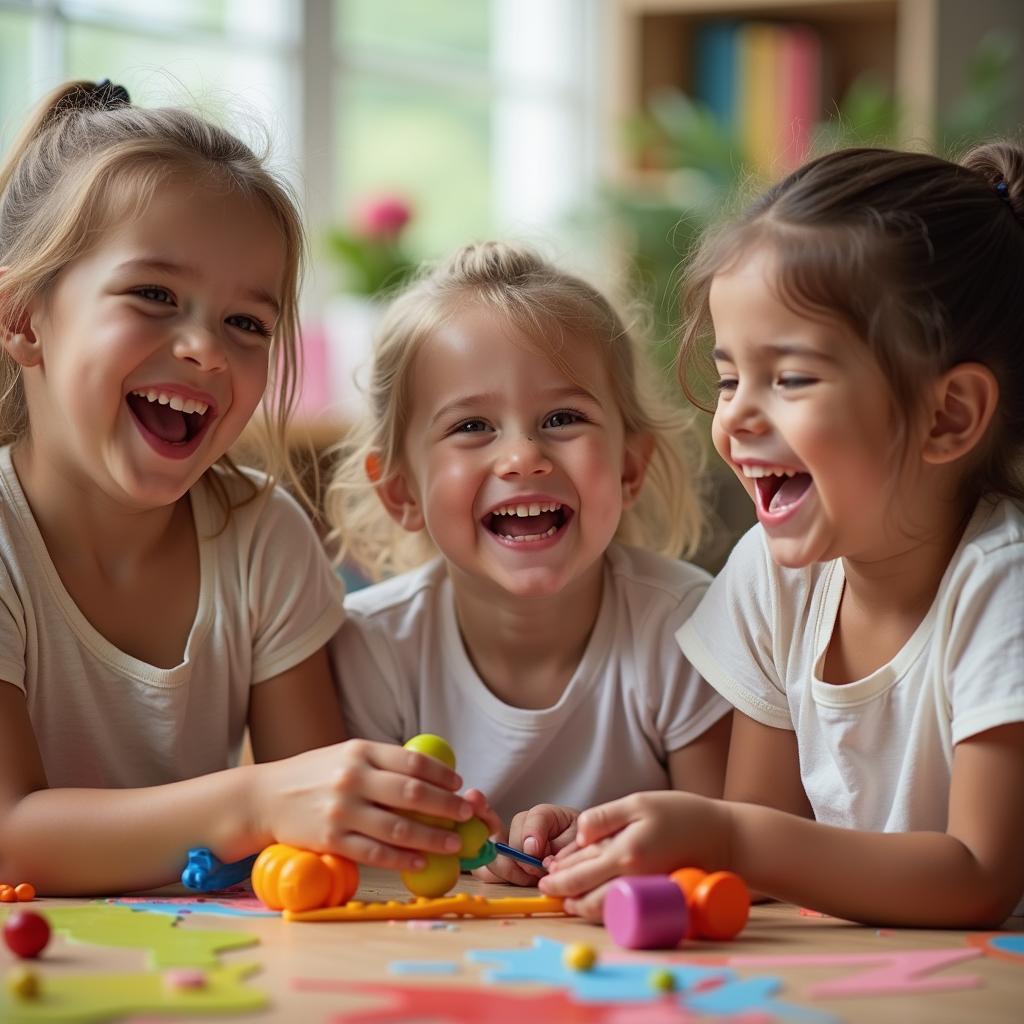The Unsung Power of Play: Shaping Young Minds
Play is not merely a pastime for young children; it’s the cornerstone of their development and learning. It’s a fundamental process through which children explore their world, build relationships, and develop crucial skills that will serve them throughout their lives. From the seemingly simple act of stacking blocks to the imaginative worlds created in pretend play, every playful interaction contributes significantly to a child’s holistic growth.
This crucial role of play is supported by extensive research across multiple disciplines. Cognitive, social, emotional, and physical development are all intricately interwoven with a child’s playful experiences. Let’s delve deeper into the specific ways play impacts each of these areas:
Cognitive Development: Play stimulates cognitive growth in several key ways. For instance, building with blocks enhances spatial reasoning and problem-solving skills. Pretend play, where children create scenarios and roles, develops symbolic thinking and language skills. Engaging with puzzles and games cultivates critical thinking and strategic planning abilities. The very act of experimenting, exploring, and testing boundaries within a playful context fosters creativity and innovation.
Social and Emotional Development: Play provides a safe and supportive environment for children to learn about social interactions. Through collaborative play, they learn to negotiate, share, cooperate, and resolve conflicts. They develop empathy and understanding of others’ perspectives by taking on different roles in pretend play. Moreover, play helps children regulate their emotions. Engaging in activities that involve frustration and overcoming challenges builds resilience and problem-solving skills in emotional contexts.
Physical Development: Active play, such as running, jumping, climbing, and ball games, is crucial for developing gross motor skills. Fine motor skills are honed through activities like drawing, painting, using building blocks, and playing with manipulative toys. These activities not only improve physical coordination but also contribute to overall physical health and fitness.

The benefits of play extend beyond the individual child. Playful interactions between children and caregivers foster strong attachments and positive relationships, laying the foundation for secure emotional development. This supportive environment encourages exploration and experimentation, fostering a lifelong love of learning. Furthermore, play allows children to express themselves creatively and develop a sense of self-efficacy, believing in their own abilities to shape their world.
The Importance of Unstructured Play: While structured activities have their place, unstructured or free play is particularly valuable. This is when children are allowed to choose their activities, set their own pace, and explore their interests without adult intervention. Unstructured play promotes creativity, autonomy, and self-directed learning. It allows children to explore their own ideas and solutions, fostering problem-solving skills that aren’t easily taught in a structured setting.
Conclusion: Play is not a luxury; it’s a necessity for healthy early childhood development. By prioritizing play opportunities, we empower children to thrive cognitively, socially, emotionally, and physically. Let’s champion play as a vital component of early childhood education and nurture the next generation of creative, resilient, and adaptable individuals. Understanding and supporting the role of play is crucial for creating a world where children can reach their full potential.




Use the share button below if you liked it.
It makes me smile, when I see it.